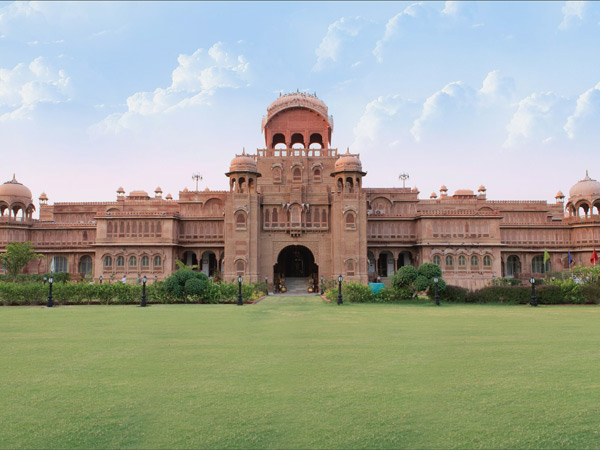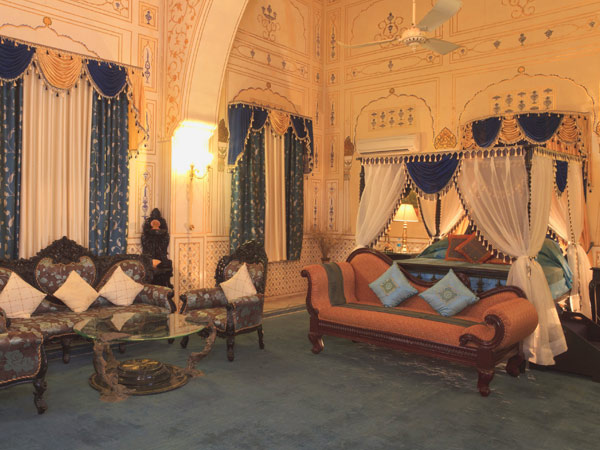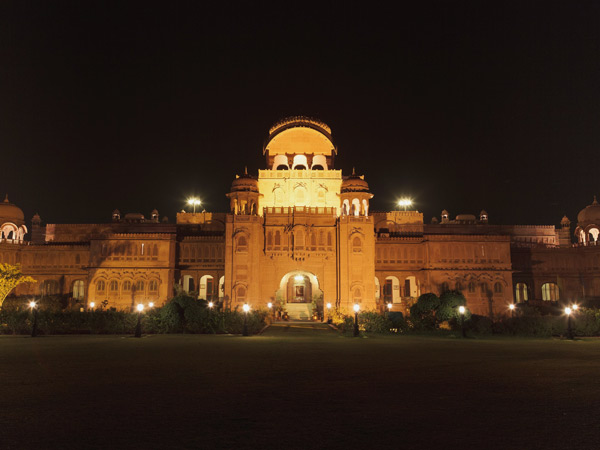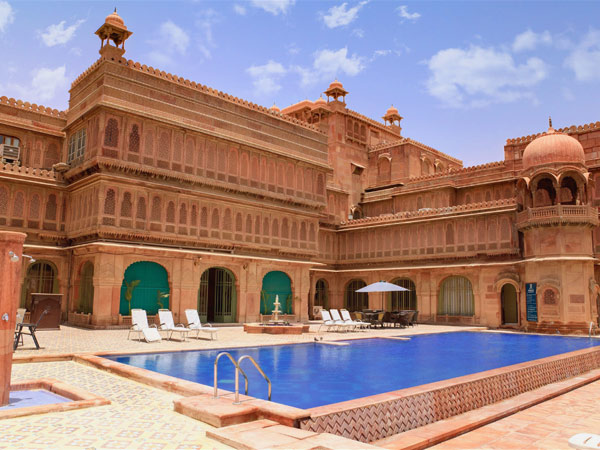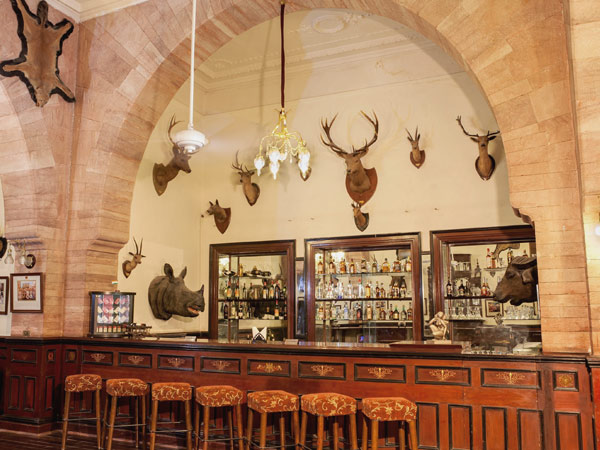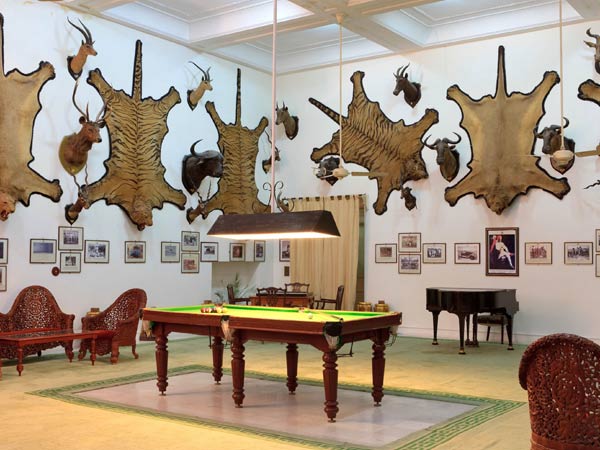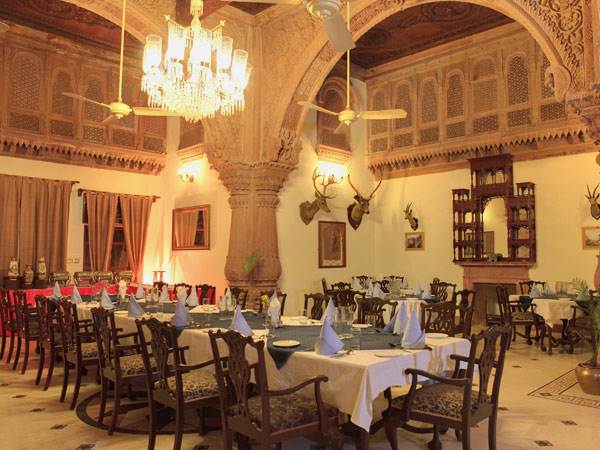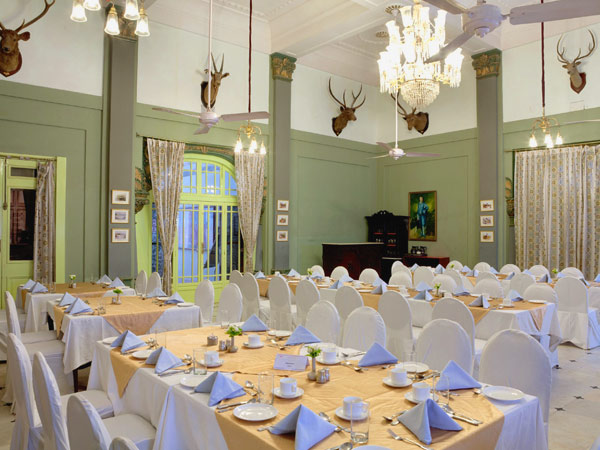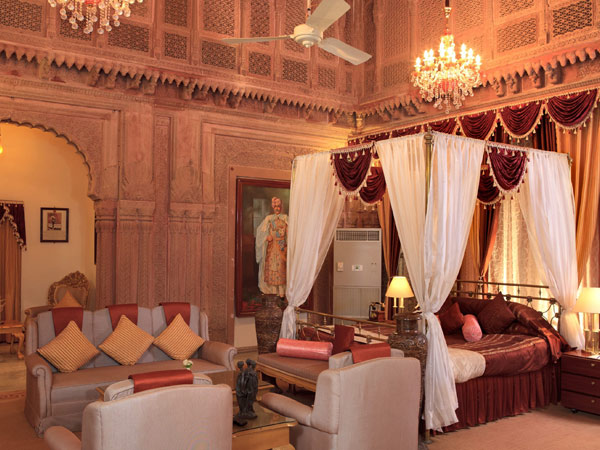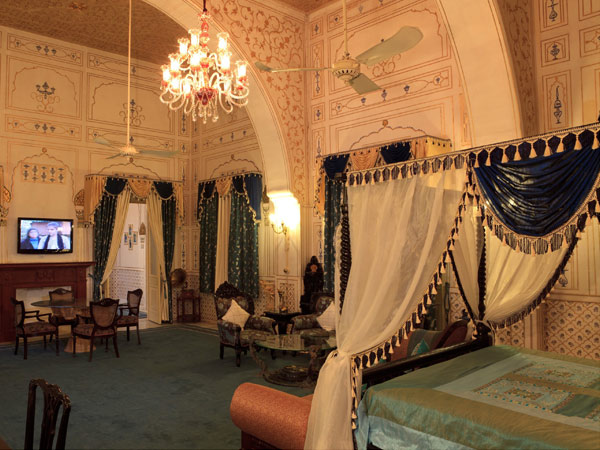LAXMI NIWAS PALACE
- Address:Dr. Karni Singhji Road, BikanerPlace:BikanerCountry:IndiaZip Code:Zip/Pin Code: 334001
- Description:
In view of the wishes expressed by Maharaja Ganga Singhji during his minority, the regency council in the last year of its regime in 1897 AD took in hand construction of a new palace. The Maharaja Choose Sir Swinton Jacob the then Chief Engineer of Jaipur State, who was considered one of the foremost exponents of the architectural style known as "Indo – Saracenic". based on Rajput and Mughal architecture. Sir Swinton has designed the Laxmi Niwas Palace which was constructed in a period of four years and completed in 1902 A.D. It's marble courtyards, magnificent halls, anterooms, Colonnaded corridors, canopied balconies adorned with intricate filigree and lattice work in stone and wood with aesthetically designed interior decoration of frescoes and mural paintings in gold and exquisite lacquers were all executed by the hereditary craftsmen of Bikaner under the watchful eye of the young Maharaja who took keen interest in the finalisation of motifs and designs as well as execution of work at all stages of construction. For its artistic excellence of ornately elegant splendour, this palace was also viewed by the architects "Lutyens and Baker" in 1914 when they weve touring India to seek designs for building Delhi, the new capital of India. Built of pink sandstone, brought from the stone quarries of Dulmera, some 45 kms. north of Bikaner city and set amidst acres of landscaped gardens dotted with lily pools and fountains, this monumental palace in all its grandeur and beauty was the principal residence of the Maharaja of Bikaner, exclusively for the use of Royal family and their guests. The Palace, when completed was named after the goddess of wealth & prosperity – "LAXMI", consort of Lord "LAXMI NARAINJI" (another name of The Creator Vishnu) one of the Tutelary Deities of the House of Bikaner. Maharaja Ganga Singhji's outstanding gift was his flair for hospitality. Those whom he had the privilege of playing host in this palace included king George V & Queen Mary (as Prince & Princess of Wales in 1905), the king of Greece, the Prince of Wales (later king Edward viii in 1921) viceroys, Maharajas and renowned statesmen including his old friend, the great French radical leader M. Clemenceau whose political antagonisms had earned him the formidable title of "TIGER" and who, as prime minister of France presided over the deliberations of the first world war Peace treaty at Versailles in 1919. The list of the honoured guests runs like a who's who. It includes the honourable Dr Rajendra Prasad, First president of our republic; the venerable veteran nationalist leader and founder of the Benaras Hindu University, Pt. Madan Mohan Malviya Ji ,Dr (Mrs)Sarojini Naidu , Sir Tejbahadur Sapru, Sir Akbar Haidri etc. The Laxmi Niwas Palace opened its doors as a luxury heritage hotel at the turn of the Twenty first century has 60 palatial rooms fitted with all modern amenities. This beautiful hall was the private audience room of Maharaja Ganga Singhji. The green wooden and gold theme wall painting with a carved and gilded wooden ceiling was designed to provide an ambience conducive to serious thinking. The audience room has been witness to many important cabinet meetings of the Bikaner State. Today it is the conference hall of The Laxmi Niwas Palace. Equipped with all major facilities it provides the perfect backdrop for an unforgettable conference The Palace offers a quite a few games and entertainment. An illuminated Lawn Tennis court, Badminton Court, Croquet, Practicing Net, Putting Green, 3 Greens, Table Tennis, Billiard and board games are a few to mention. A luxurious multi cuisine restaurant, the Swarna Mahal is located in the private dining hall of the Royal family. Decorated with pure gold wall paintings and a gilded carved woodwork ceiling the Swarna Mahal is literally a “golden room†with an ambience that transports you to a fairy tale world of beautiful princesses and chivalrous princes. The chef takes his inspiration from the famed table of the Bikaner Royal Family. Apart from its regular menu Swarna Mahal also serves several mouth watering local specialities. Dinner in the Rajasthan Village An authentic traditional local cuisine is being served here. Rajasthan Village is being setup. Cultural entrainment is added for one experience the rural rusty but rich cultural life style. Dinner in the Sand Dunes At 10 kms from the Palace, in a rustic camping set up a theme dinner is organized in the sand dunes. The venue is lit up with mashals and oil lamps. Desert singers and dance troops liven up the evening with their enchanting performance. Evenings in the desert and in the sand dunes open to the sky, a beautiful experience.
- Hotel Chain:
A Unit of Golden Triangle Fort & Palace P. Ltd
- Total Rooms:
60
- Room Facility:
Ironing board, Butler service on request, Tea/coffee maker.
- Room Services:
24 hrs
- Other Facility:
Camel safari, Banquet hall, Conference facilities, Lounges, Tennis, Billiards, Credit cards, Croquet court, Lush green lawns, Doctor on call, Masseur, Astrologer, Rajasthani folk singer, Puppet show, Jeep safari.
- Others:
All major credit cards accepted.Rajasthan Folk music/dance, Desert folk songs, Kalb Elian music, Fire dance, Gazal, Kavalies and varieties of entertainment program are being arranged. These entertainment programs are organized in the Courtyard/Recreation hall/Garden. Trekking in the desert is very adventurous. Pack your sack with trekking kits and set for a 5 to 10 kms trekking in the desert and sand dunes. Trekking en-thrills an experience courage when in isolation and also test your endurance power. It remains a favorite sport with young and old
- Location Advantage:
2 kms North of Junagarh Fort .
- Access Airport:
250 kms. from Jodhpur Airport
- Access Rail:
3 kms. from Bikaner Railway station
